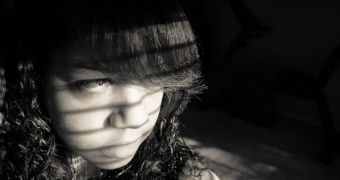Researchers at the University of Western Ontario (UWO) Schulich School of Medicine and Dentistry have determined in a new study that women who were diagnosed with depression before getting pregnant have a higher chance of developing bipolar disorder after birth.
The team says that women in this particular group should be monitored during the period when they suffer from postpartum depression, a common condition that follows birth. However, in some women, manic symptoms during this time may hint at the development of bipolar disorder.
The UWO group published results of their latest study in the most recent issue of the esteemed medical journal Bipolar Disorders, PsychCentral reports. Scientists say that all reproductive events lead to mood disorders in women, but say that pregnancy has the most dramatic effect.
Psychiatrist Dr. Verinder Sharma argues that the postpartum period and menopause also trigger similar effects, but of lower intensity. This, in essence, implies that women are less likely to develop symptoms associated with bipolar disorders following these events.
“We know childbirth is a potent and specific trigger for mania and hypomania. What I wanted to do was to see, if you have a group of women with just depression, how many of them would convert to bipolar disorder after giving birth. A large number of women do convert,” Sharma explains.
The expert adds that current medical literature does not place too much emphasis on the incidence of bipolar disorders following birth. Most of the studies on postpartum mental illnesses or changes are focused on depression.
“When physicians and other caregivers are assessing women with postpartum depression, they have to screen them for bipolar disorder. This has important treatment implications and there are some safety issues as well. Bipolar disorder is more likely associated with suicide, and, perhaps, infanticide,” the team leader adds.
Statistics show that a significant number of women who get hospitalized in psychiatric centers after birth are eventually shown to suffer from bipolar disorders. Thus far, very few studies have looked at how hormonal changes in women affect the development of such mental illnesses.
“We now want to look at women who have just postpartum depression, to see whether the presence of manic symptoms (changes) in response to treatment,” Sharma concludes.

 14 DAY TRIAL //
14 DAY TRIAL //